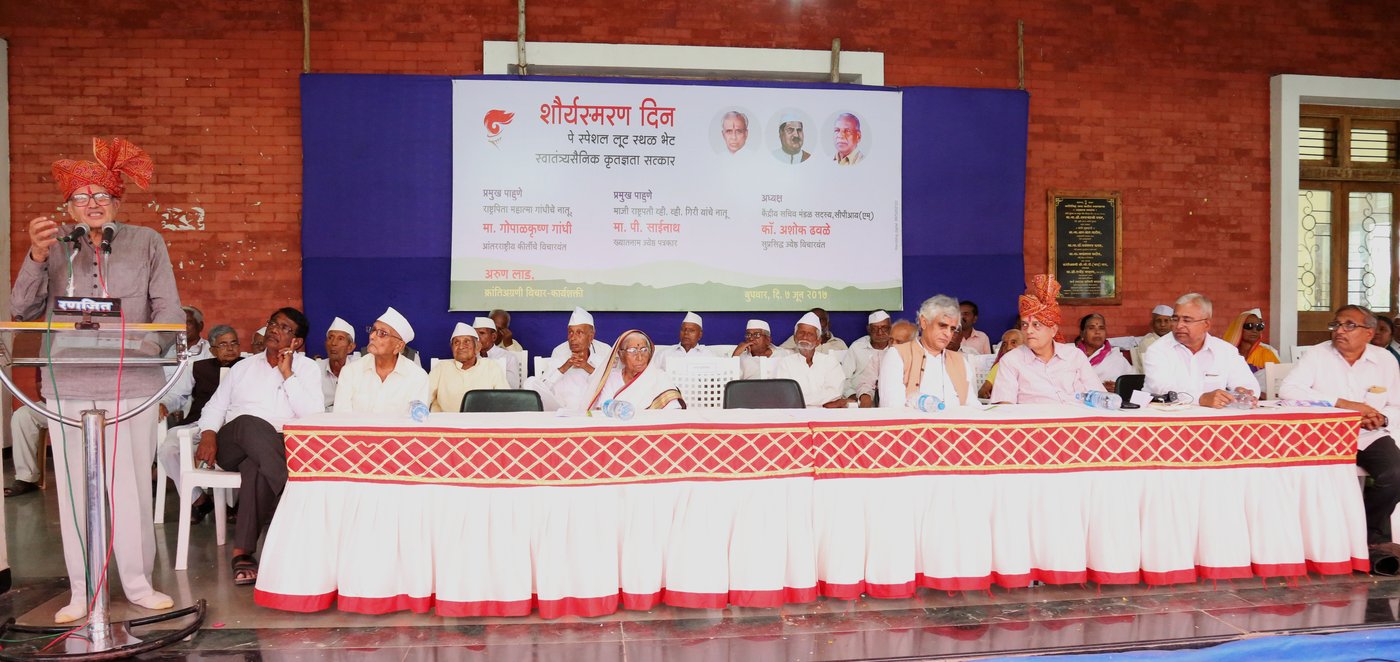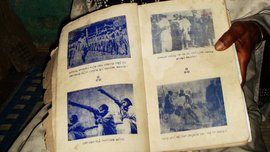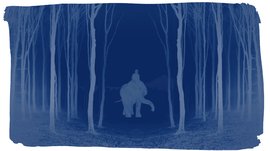One of the most touching, moving moments of our lives – and that of the People’s Archive of Rural India – occurred on Wednesday, June 7. I am proud to say it happened on PARI's initiative. Remember that story about Captain Elder Brother and the whirlwind army ? Well, this moment, too, involved Captain Elder Brother and other forgotten heroes as well.
As the years go by, the sadness grows: the last fighters of India's struggle for freedom are passing away, dying. The next generation of Indian kids will never see or hear the voices of any of those who brought us independence. Possibly, many reading this piece have never had that experience either.
That's why, for years, I’ve been recording and documenting the grand old men and women of that struggle, filming them, writing about them. All the time regretting that most of them will go gently into that not-so-good night. Unrewarded, unrecognised.
So we helped organise a reunion of and for the last survivors of Satara’s prati sarkar or provisional, underground government of 1943-46. And the aging warriors of the Toofan Sena and other freedom fighters in Satara and Sangli districts of Maharashtra were honoured on June 7. The very day in 1943 when they attacked a train carrying the salaries of officials of the British Raj at Shenoli village in Satara. Lifting the payroll, they gave that money to the poor and for the running of the prati sarkar that they had set up.
We asked Gopal Gandhi, retired diplomat, former Governor of West Bengal – and grandson of the Mahatma – to come from Delhi and speak at the event. He did, and was deeply moved as well by what he encountered.
The Toofan Sena (whirlwind or typhoon army) was the armed wing of the prati sarkar – an astonishing chapter in India’s struggle for freedom. Springing up as an armed offshoot of the Quit India movement of 1942, this group of revolutionaries declared a parallel government in Satara – then a huge district that included present-day Sangli.

Gopal Gandhi felicitates Haunsatai Patil (left), daughter of prati sarkar hero Nana Patil, at the event in Kundal and (right) honours Madhavrao Mane
In Shenoli, at that historic point on the railway track, we held what we thought would be a very small ceremony with a few fighters to honour the historic event. Instead, 250 people showed up at 3 p.m. on a summer afternoon. Several in their 80s and 90s were scrambling around the railway line like children in a park. For them this was a sangam , a meeting place of different streams of the freedom movement. And there were old armed struggle revolutionaries giving Gopal Gandhi a warm hug and shouting ‘Mahatma Gandhi ki jai' . Especially Captain Bhau, 95, eyes moist with tears of pride, unwell, but determined to participate. Madhavrao Mane, 94, dashing around the track like a sprightly kid, me running after him terrified he would fall. He didn't. Nor did his smile, at any time.
So we went to the vantage point, down the track, the corner at which the sainiks had blocked and boarded the train 74 years ago. There is a small memorial here – not for the revolutionaries, but one installed by the British Indian railways to mourn the attack. Perhaps it’s time to put another monument alongside, marking the true meaning of that day.
Later we went to the big programme in Kundal, seat of the prati sarkar in 1943, some 20 minutes from Shenoli. This event was organised by locals and descendants of the original fighters. By the families of G.D. Bapu Lad, of Nagnath Nayakwadi, of the legendary Nana Patil (head of the prati sarkar ). Only one of the great quartet of 1943 still lives – and so could attend in person: Captain Bhau. Also there, alive and articulate, was Nana Patil's daughter, Haunsatai Patil, herself a member of the radical underground. Captain Bhau, that grand old man, had been out on the streets just two days earlier. Yes, in support of Maharashtra's agitating farmers. Do remember: many of those freedom fighters were themselves farmers or farm labourers. As quite a few of their descendants today still are.
The government of Maharashtra observed the June 7 anniversary differently from us. And more in the manner of the British Raj of 1943. By sending out its police to crackdown on farmers. This hurt the preparation for our freedom fighters’ events. Many farmers and farm activists were grabbed and tossed into the lock-up in 'preventive arrests’. Illegal detentions at the end of which no charges were filed. Umesh Deshmukh of the Kisan Sabha was a key organiser of the freedom fighters' meetings in Shenoli and Kundal. Ironically, he could not attend either himself. He was picked up at 5.30 a.m. and, along with eight others, thrown into the Tasgaon police station lock-up. Umesh had been the man calling on the old fighters at their homes, arranging and mobilising for their reunion.
And yet both meetings happened – not a chair vacant, many standing, with over 20 freedom fighters on the podium in Kundal. Gopal Gandhi spoke to an audience that listened in rapt attention: of the freedom struggle, of Mahatma Gandhi's approach to it, of Gopal’s respect for the old fighters, of our own times and attitudes.
Soon after he finished, the audience rose and gave the old warriors of freedom a standing ovation that went on longer, far longer than anyone might expect. Kundal was saluting its heroes and heroines. There were tears in many eyes. Mine too, as I stood there applauding those wonderful men and women in their 90s, so overwhelmed, proud and joyous that their own town was acknowledging them this way. This was the last great moment of their last years. Their last hurrah.

The audience rise to their feet to applaud the fighters. Right: Doughty warrior Captain Bhau, 95, at the function in Kundal
Photos: Namita Waikar, Samyukta Shastri, Sinchita Maji



